Sailing/Yachting is an Olympic sport starting from the Games of the 1st Olympiad. With the exception of the 1904 and the canceled 1916 Summer Olympics, sailing has always been included on the Olympic schedule. The Sailing program of 1908 was open for a total of five sailing classes (disciplines), but actually only four Sailing events were contested. The planned venue of all races, named matches, was Ryde, Isle of Wight.
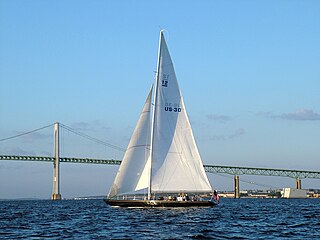
The 12 Metre class is a rating class for racing sailboats that are designed to the International rule. It enables fair competition between boats that rate in the class whilst retaining the freedom to experiment with the details of their designs. The designation "12 Metre" does not refer to any single measurement on the boat, and is not referencing the vessels overall length, rather, measures the sum of the components directed by the formula which governs design and construction parameters. Typically 12 Metre class boats range from 65 to 75 feet in length overall; they are most often sloop-rigged, with masts roughly 85 feet tall.

Sailing/Yachting is an Olympic sport starting from the Games of the 1st Olympiad. With the exception of 1904 and the canceled 1916 Summer Olympics, sailing has always been included on the Olympic schedule. The Sailing program of 1912 consisted of a total of four sailing classes (disciplines). For each class two races were scheduled from 19 July 1912 to 22 July 1912 off the coast of Nynäshamn at the Baltic Sea.
The 10 Metre was a sailing event on the Sailing at the 1912 Summer Olympics program in Nynäshamn. Two races were scheduled plus eventual sail-off's. 28 sailors, on 4 boats, from 3 nation entered.
The 12 Metre was a sailing event on the Sailing at the 1912 Summer Olympics program in Nynäshamn. Two races were scheduled plus eventual sail-off's. 27 sailors, on 3 boats, from 3 nations entered.

The International Six Metre class is a class of classic racing yachts. Sixes are a construction class, meaning that the boats are not identical but are all designed to meet specific measurement formula, in this case International rule. At their heyday, Sixes were the most important international yacht racing class, and they are still raced around the world. "Six metre" in class name does not, somewhat confusingly, refer to length of the boat, but product of the formula; 6mR boats are, on average, 10–11 metres long.
Per H. Bergman was a Swedish sailor who competed in the 1912 Summer Olympics. He was a crew member of the Swedish boat Erna Signe, which won the silver medal in the 12 metre class.
Dick Bergström was a Swedish sailor who competed in the 1912 Summer Olympics. He was a crew member of the Swedish boat Erna Signe, which won the silver medal in the 12 metre class. His brother is Kurt Bergström.
Kurt J. Bergström was a Swedish sailor who competed in the 1912 Summer Olympics. He was a crew member of the Swedish boat Erna Signe, which won the silver medal in the 12 metre class at the 1912 Olympics. His brother Dick Bergström was also a crew member.

Hugo Clason was a Swedish sailor who competed in the 1912 Summer Olympics. He was a crew member of the Swedish boat Erna Signe, which won the silver medal in the 12 metre class.
Folke Johnson was a Swedish sailor who competed in the 1912 Summer Olympics. He was a crew member of the Swedish boat Erna Signe, which won the silver medal in the 12 metre class.
Iwan Lamby was a Swedish sailor who competed in the 1912 Summer Olympics. He was a crew member of the Swedish boat Erna Signe, which won the silver medal in the 12 metre class.
Erik J. Lindqvist was a Swedish sailor who competed in the 1912 Summer Olympics. He was a crew member of the Swedish boat Erna Signe, which won the silver medal in the 12 metre class.
Nils Persson was a Swedish sailor who competed in the 1912 Summer Olympics. He was a crew member of the Swedish boat Erna Signe, which won the silver medal in the 12 metre class.
Richard Hugo Sällström was a Swedish sailor who competed in the 1912 Summer Olympics. He was a crew member of the Swedish boat Erna Signe, which won the silver medal in the 12 metre class.
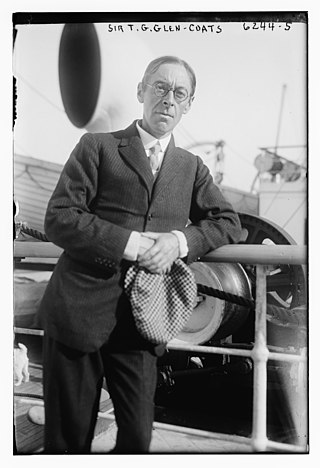
Sir Thomas Coats Glen Glen-Coats, 2nd Baronet was a Scottish sailor who competed for the Royal Clyde Yacht Club in the 12-metre class at the 1908 Summer Olympics.
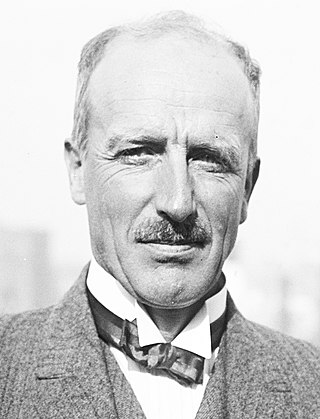
Johan August Anker was a Norwegian sailor and yacht designer who competed in the 1908 Summer Olympics, in the 1912 Summer Olympics, and in the 1928 Summer Olympics.
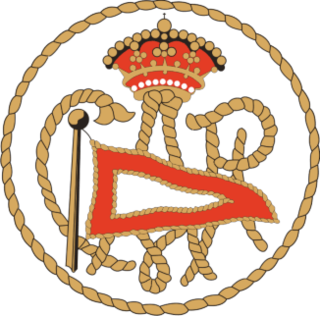
Real Club Astur de Regatas is located in Gijón, Asturias (Spain). It is the oldest and most important yacht club in Asturias.
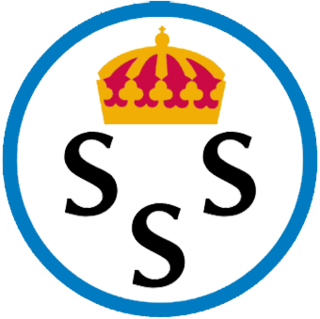
The Royal Swedish Yacht Club, is the largest and oldest yacht club in Sweden and one of the five oldest in the world, formed 15 May 1830. The Royal Swedish Yacht Club is also the oldest yacht club in Continental Europe.

Princess Svanevit is a Swedish 12 metre class yacht, at 21.95 m (72.0 ft) the longest ever built. It was by designed by Gustaf Estlander & Tore Holm and built at August Plym's wharf Neglingevarvet by his sons Carl Plym and Bengt Plym.









